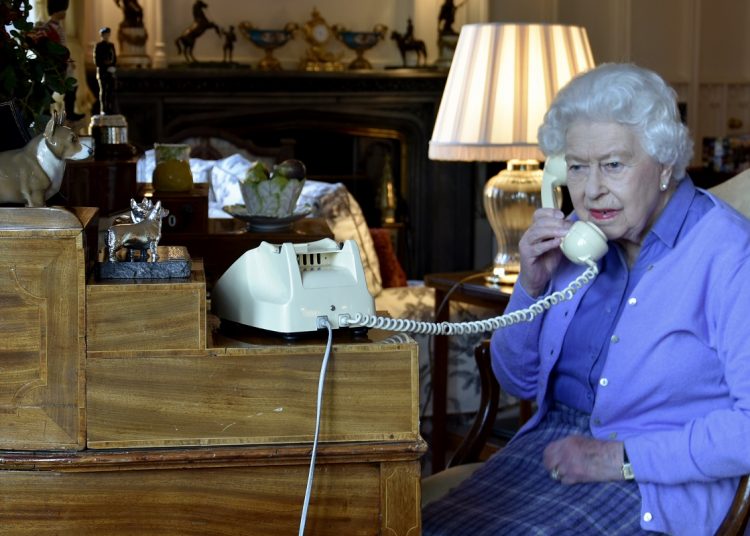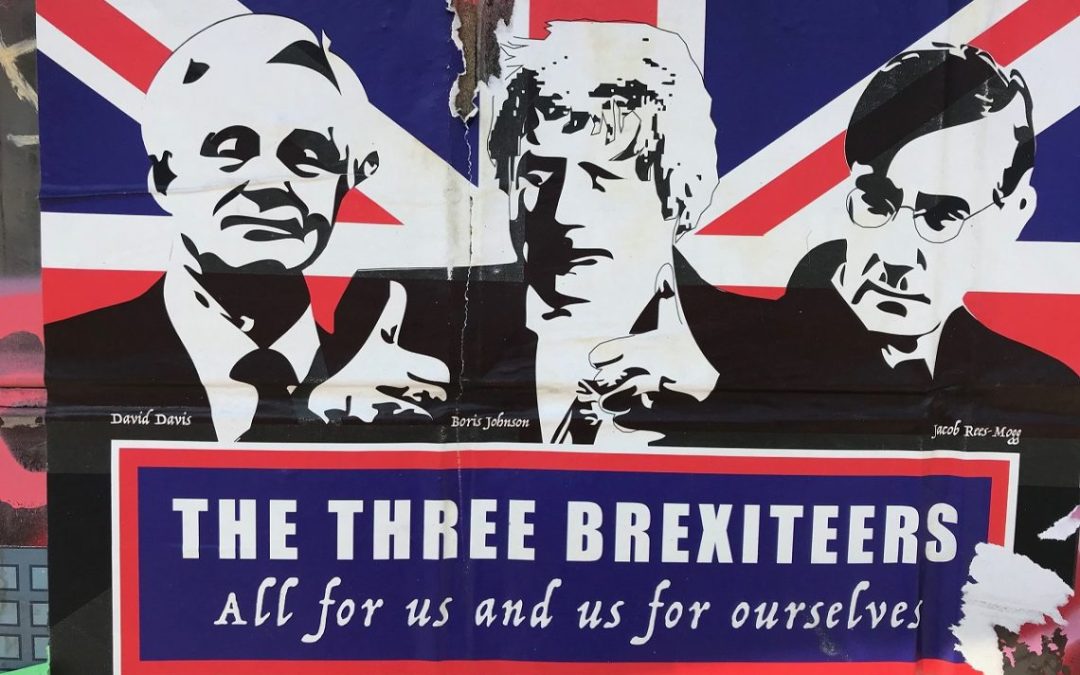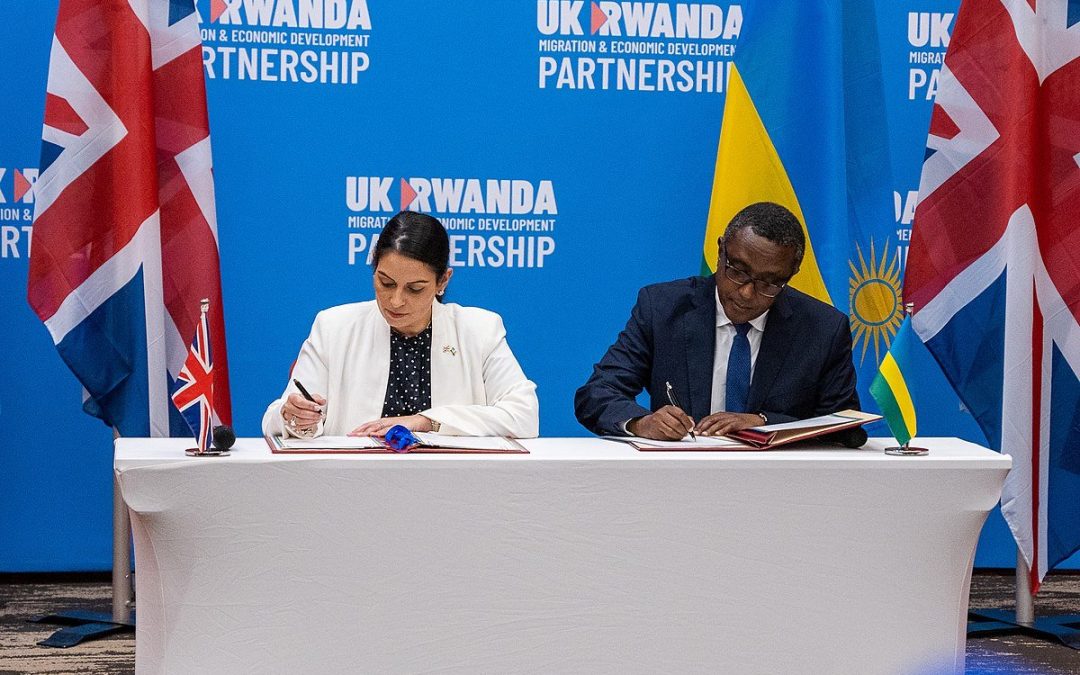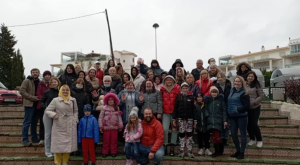
Will Johnson ask the Queen to announce her government’s intention to break the law?
 Lisa Burton
Lisa Burton
If Johnson expects the Queen to announce this legislation in her speech it will prove that he has no respect for the Queen
Last week the Independent reported ‘Boris Johnson set to use Queen’s Speech to pick Brexit fight with EU’. The article was about the UK government’s intention to bring in a bill that would give new powers to Northern Ireland politicians enabling them to override parts of the Northern Ireland protocol. This policy would unquestionably breach international law yet be included in the Queen’s Speech.
Picking a fight with the EU
The protocol is part of the Brexit withdrawal agreement, an international, legally binding agreement signed between the European Union and the United Kingdom. Its purpose was to avoid a hard border between the north and south of Ireland to protect the Good Friday agreement’s fragile peace. The UK chose the hardest possible Brexit, which meant leaving the customs union and single market, thus creating a customs border between the EU and the UK.
On 17 October 2019, Johnson agreed with the EU that the required customs border would be in the Irish Sea. Something his predecessor Theresa May had refused to do. He hailed the agreement as a victory, loudly proclaiming he had ‘got Brexit done’. All handily just in time to win the favour of voters before the December general election.
Johnson repeatedly lied to the people and business leaders of Northern Ireland regarding the consequences of the deal he signed. He denied there would be any forms or friction, famously saying that if any business had to fill in forms or declarations, they could just put them “in the bin”. He also said “there would be no barriers of any kind” to trade crossing the Irish Sea. Nothing could have been further from the truth.
They never intended to adhere to the deal they signed
The Conservatives lulled a weary population into thinking the deal’s signing would mark the end of the Brexit saga that had engulfed the country since 2016. It was a ploy to win votes, and it worked.
Since then, it has come out via many channels that the government signed the Brexit withdrawal agreement knowing they would not adhere to it. Indeed, as recently as last week, Jacob Rees-Mogg told the European scrutiny committee that the protocol was only signed by the UK “on the basis that it would be reformed” and that “wheels are in motion” to resolve the protocol issue. He arrogantly stated, “ultimately, we can do what we want”.
They can’t, not legally; the protocol is part of an international treaty between the UK and the EU. It was embedded in British domestic law. Ministers cannot overturn it (or parts of it) without breaching that law. It can only be changed if both the UK and the EU agree. The European Union executive responded to Rees-Mogg’s statement by telling reporters in Brussels that “the withdrawal agreement, the protocol on Ireland and Northern Ireland, are legal obligations to which the UK is bound”.
The Queen’s Speech
The Queen’s Speech takes place at the state opening of parliament each spring and is steeped in traditions and practices going back to the 16th century. Typically, it begins with the Queen’s procession from Buckingham Palace to Westminster, escorted by the household cavalry. All sections of the British media extensively cover it.
This year, it falls on 10 May 2022. As tradition dictates, Her Majesty Queen Elizabeth II is expected to set out the government’s agenda, proposed policies, and legislation for the session ahead. The Queen has opened parliament all but two times during her reign. In 1959 and 1963, the exceptions were when she was pregnant with Andrew and then Edward.
Although the Queen reads the speech in parliament, it is written by the government. So the question is, will Johnson and his ministers really have the audacity to expect Her Majesty to announce that her government intends to break international law?
Usually, this would be unthinkable, but this is Johnson, a man who seems intent on saving his political skin at any cost. We know that Johnson previously broke the law and lied to the Queen; well, to be more precise, he sent Rees-Mogg to lie on his behalf to the Queen when he illegally prorogued parliament for five weeks at the height of the Brexit debates in October 2019.
After a legal challenge in the supreme court, all 11 supreme court judges deemed the prorogation of parliament unlawful, adding, “This was not a normal prorogation in the run-up to a Queen’s Speech. It prevented parliament from carrying out its constitutional role for five out of a possible eight weeks between the end of the summer recess and exit day on the 31st of October”.
These are not regular times
In normal times, even the suggestion that a prime minister would consider using the monarch to announce an intention of lawbreaking would be inconceivable. Still, these are not normal times and although it would be shocking, would it be that surprising? After all, Johnson has form for this sort of thing.
There was a welcomed and marked change in rhetoric from the British government towards the EU after the Ukraine invasion. Picking a legal battle with the EU whilst war engulfs Ukraine stands in stark contrast to the unity and cooperation required to stand against Vladimir Putin. Sadly, the façade of collaboration for the greater good appears to have been short-lived.
The last thing Europe needs right now is infighting. Despite all his failures, Johnson has provided significant military assistance to Ukraine. He has been in regular touch with European leaders, and the West standing together with one purpose and voice has been a powerful force. A dis-united Europe is Putin’s dream and goal. The instability Brexit brought to the EU strengthened him and his long-term plans, and here we are, six years later, with Brexit still causing instability and division.
The UK’s international reputation
It is blatantly apparent to all but Johnson’s most ardent supporters that the international reputation of Great Britain has suffered dramatically over the past few years, particularly under Johnson’s leadership. The United Kingdom was viewed and admired as a country of common sense, law, tradition, and democracy. That is not how the international press and the rest of the world view it now.
If Johnson’s government does break international law, this will further damage the country’s reputation on the global stage. It would signal to the world that the UK cannot be trusted to keep its promises and that any future deals signed may be reneged upon. The UK would become an untrustworthy partner.
If the Queen announces the intention to law break, will it be the final straw?
The political norms of old do not currently exist. Johnson is intrinsically linked to Brexit and the lies upon which it was built. The ongoing division, deflection, and dishonesty we see now are extensions of what we have witnessed since 2016. Yet, many within the Conservative Party seem to be willing to excuse any wrongdoing to keep Johnson in power. After all, who else could be relied on to perpetuate these lies and divisions so well if Johnson goes?
If Johnson expects the Queen to announce this legislation in her speech, it will prove, once and for all, that this prime minister has no respect for the Queen, the country, or the remarkable institutions that have held up British democracy for centuries. The people of the United Kingdom and Her Majesty deserve so much better.












